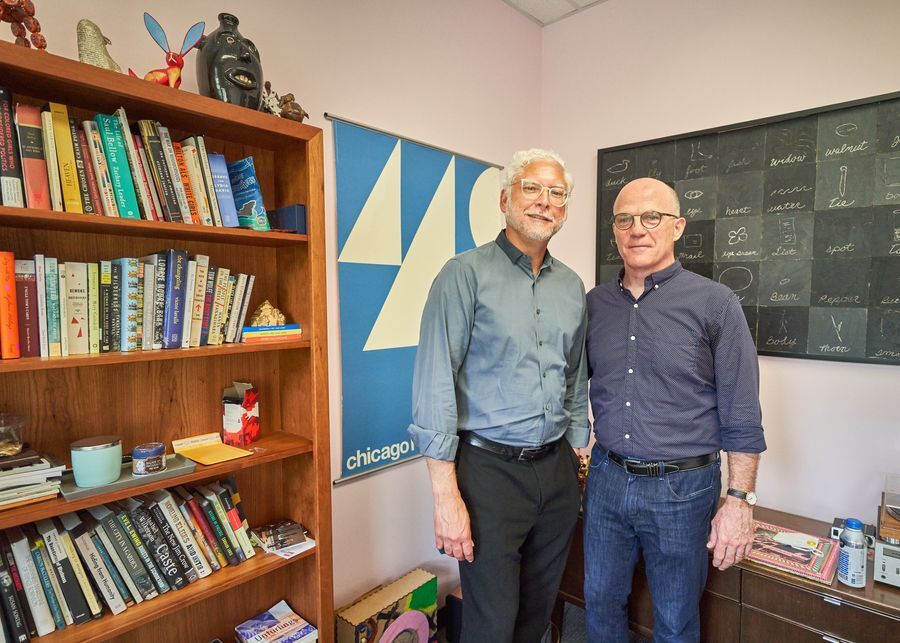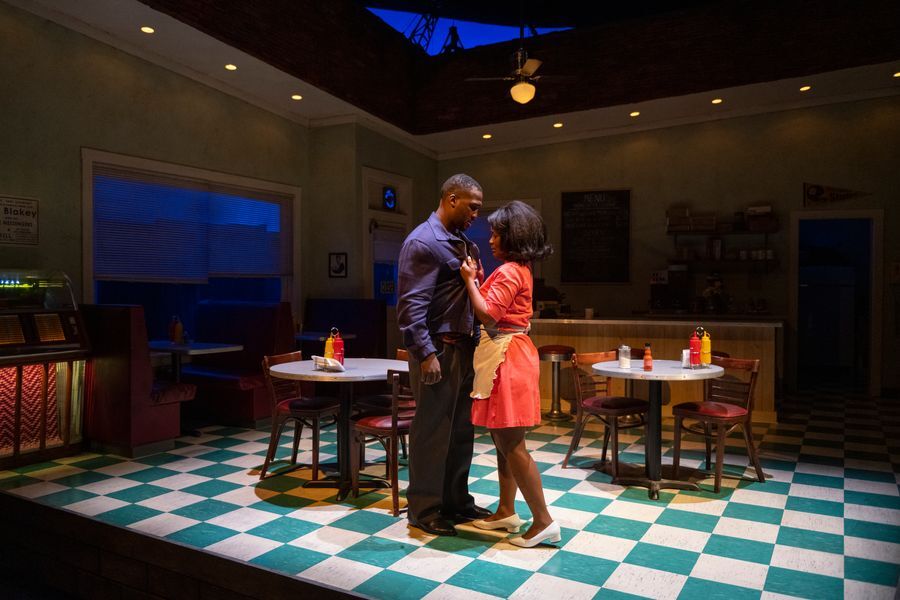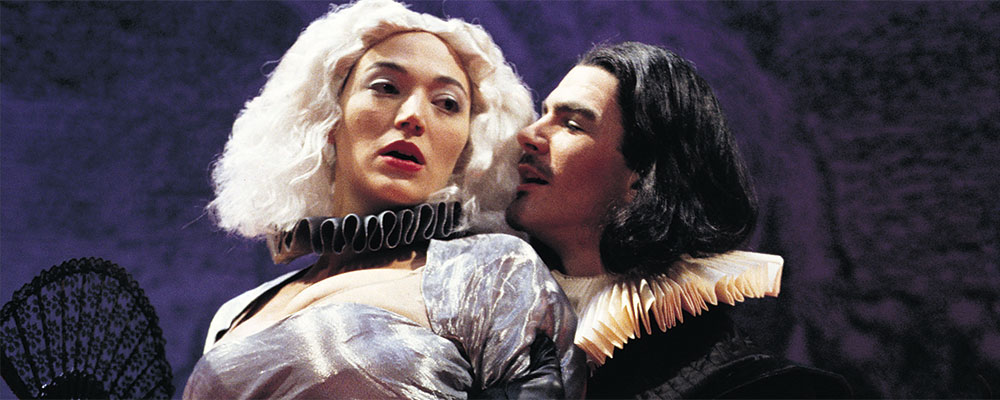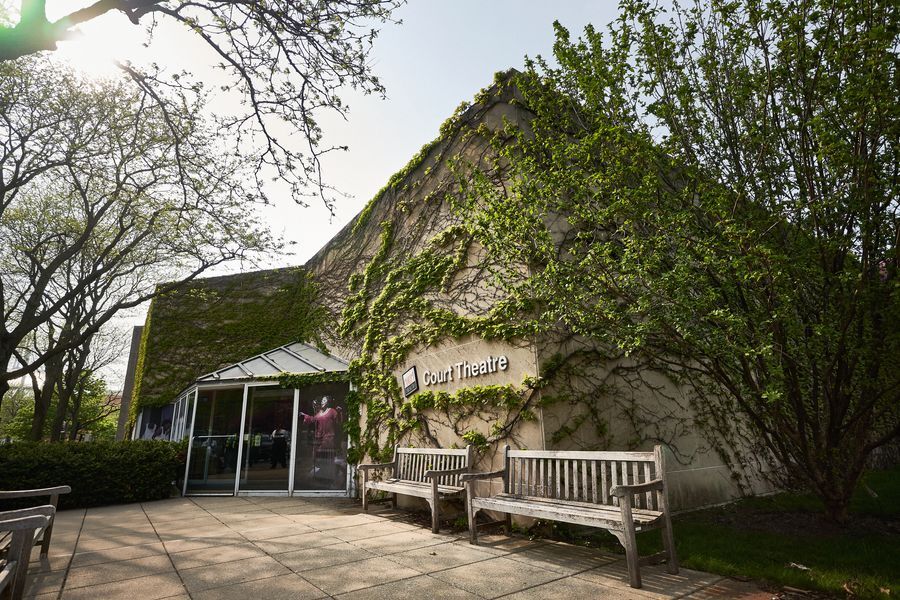CHICAGO: Can a classics-based theatre company be forward-looking? In large part that has been the animating question of Court Theatre, located in a 251-seat venue on the campus of University of Chicago on the town’s South Side. The answer seems to be affirmative: From its pandemic-paused production of The Tragedy of Othello to such literary adaptations as Richard Wright’s Native Son or its hosting Manual Cinema’s take on Frankenstein, Court is hardly cycling through a dusty repertory. By putting the work of Ntozake Shange and Marsha Norman on the same stage as Ibsen and Euripides, the theatre is making a powerful statement—along the lines of what Jill Rafson said regarding her new job leading New York City’s Classic Stage Company—about what constitutes a classic. But that’s not all: In giving the Court Theatre the 2022 Regional Tony Award, the Broadway League and American Theatre Wing cited the company’s “dedication to fostering local talent, artistry, and theatre within their community.” The theatre’s leaders recently answered questions by email.
AMERICAN THEATRE: Who founded Court Theatre, when, and why?
Charles Newell: That’s a funny question, because it should be fairly straightforward to answer, but in our case, it actually isn’t. Court was technically founded in 1955 as an outdoor summer theatre, and, in 1975, Nicholas Rudall—a classics professor at the University of Chicago at the time—became our founding artistic director. So you could count either one of those as our official start, given Nick’s role in establishing Court as a professional theatre and starting our tradition of focusing on classic texts.
Tell us about yourself and your connection to the company.
Newell: I’m the Marilyn F. Vitale artistic director of Court Theatre. I’ve been at Court Theatre since 1993, and I’ve been the artistic director since 1994. Funnily enough, in the same month that I became the artistic director, I also became a father—so lots of big, wonderful, life-altering transitions in short succession at that time.
Angel Ysaguirre: I’m the executive director. I’ve been seeing plays at Court for probably 22 or 23 years? Which was a good 18 years or so before I actually joined the theatre. I knew Court first as an audience member, and now I work here.

What sets your theatre apart from others in your region?
Newell: Well, to me, the Chicago region is the vibrant heart and soul of American theatre, because of the range, depth, and diversity of all the various theatre companies here. What really sets Court apart is where we are in that region; we’re located in a place with two incredibly generative partners. We’re a part of the University of Chicago, and our home is on the South Side of Chicago, which has been the birthplace of more cultural expression than any other neighborhood that I can think of in the United States.
Tell us about your favorite theatre institution other than your own, and why you admire it.
Ysaguirre: For me, it isn’t a theatre er se, but a theatre institution: the Shubert Foundation. They’ve stuck to their mission for decades and, as a result, they have a very specific purpose. That kind of stability can be hard to find in the arts world.
Newell: For my short list, I’d start with Manual Cinema. You’re just surprised and delighted when you see the creativity of what they do. I also deeply admire Theater Oobleck—the depth, sophistication, and humor of their work is always thrilling. And Congo Square: I have such respect for how powerfully, authentically, and unequivocally they pursue their mission. Outside of Chicago, I’d mention Theatre de la Jeune Lune (which unfortunately doesn’t exist anymore), the Wilma Theatre, New York Theatre Workshop, and Big Dance Theatre.
How do you pick the plays you put on your stage?
Ysaguirre: Well, Charlie does that—I don’t [laughs]. The way in which I try to have influence is to think deeply about how a classic play can be important. What can Court offer to a classic repertoire? And how can we acknowledge a broader sense of what a classic play is—why it’s important, and to whom it’s important? And making sure that we have a variety of work, so audiences aren’t getting the same thing over and over again.
Newell: To Angel’s point, we’re a company based in classic texts, texts where the creators tapped into something unique and specific, yet the complexity and shared humanity still carry meaning today. As an artistic leader, the one thing a play must have is questions that provoke me, make me laugh, have me in sobbing tears—without me quite understanding why. Doing the production can perhaps, but not always, answer those questions and help us see why we need to tell this story in this moment.
What’s your annual budget, and how many artists do you employ each season?
Newell: Our budget is approximately $6 million, with $1 million of that being in-kind support from the University of Chicago. Generally speaking, I’d say that we employ about 180 artists, not including staff, and that number gets closer to 200 if we’re doing a musical.
How has your theatre adapted to COVID-19, and what does the prognosis look like?
Ysaguirre: We took that time to focus more clearly our mission and identity, for one, and how we might lean into those things as we figured out how to be in the pandemic. We had online seminars, online theatrical work—basically, anything that we thought might engage our audiences and partners. In terms of the prognosis, I think it’ll take time to bounce back, but overall I’d say that the theatre is still healthy. We’re still here.

How has your theatre responded to calls for racial justice and more equitable working conditions put forward in documents like We See You, White American Theater, among others?
Ysaguirre: Court had consciously begun doing this work, and We See You helped us move forward with more intention, focus, and speed. It provided a blueprint for our work, and thankfully connected us to a larger, national conversation.
Newell: To echo what Angel said, it became an incredible guide as we began to do a much more thorough interrogation of who we are, what our practices are, and how we can create a more equitable and anti-racist organization.
Ysaguirre: We responded by doing a departmental audit to see where we were as an organization on our path to becoming an anti-racist institution. We then created specific departmental plans that were incorporated into a larger, theatre-wide plan. We check on each of these plans once a quarter to ensure that progress is being made, and problem-solve where we’re stuck.
Newell: Through the challenges to our existing systems, the major takeaway is that we’re making better art. As the artistic leader, there can be no greater motivator than that.
What show are you working on now? Anything else in your season that you’re especially looking forward to?
Newell: Whatever we’re working on is usually what I’m most excited about. Right now we’ve got Two Trains Running on, and I’m just so jazzed about that.
Ysaguirre: That play contains a lot of humor, which people are loving and feels especially necessary and appreciated in this moment. The director of that production, Ron OJ Parson, will also be directing the first show of next season, Arsenic and Old Lace. I’m looking forward to seeing how Ron deals with slapstick, and I know he’s delighted to get back to comedy with Arsenic.
Newell: We’ve got a nice bookend here! Arsenic is the start of next season, and concluding this season is a show that I’m going to be co-creating with Mark J.P. Hood, The Gospel at Colonus. The ambition behind it—a multi-year project based in Greek classical text and expressed through the Black Pentecostal Gospel experience—is really exciting.

Strangest or funniest thing you’ve ever seen (or put) on your stage?
Newell: When Joanne Akalaitis directed Life Is a Dream for us, she said that, in any powerful room, everyone’s always drinking cans of Coca-Cola. While the design was set in the Spanish Golden Age, during a major meeting in the play, there were cans of Coca-Cola onstage, which was just a brilliant choice and—frankly—caused all kinds of delight and negative reactions from our audience. To me, that was the most provocative. Just a single choice like that.
Ysaguirre: I’m going to give a similar answer, which isn’t about strange or funny; it’s more unexpected than anything else. In The Tragedy of Othello, the artistic team made the decision to make Bianca a drag queen instead of a sex worker. They were thinking about power and respectability politics in contemporary culture, so the decision to make Bianca a drag queen wasn’t for the purposes of entertainment, but rather for an exploration of power and its relationship to identity. Similar to Charlie’s example, some people responded really positively to it, and some people just didn’t know what to make of it. I thought it was really unexpected, and unexpected in a way that was a comment on the text itself.
What are you doing when you’re not doing theatre?
Newell: The look-good-feel-good answer would be “Spending time with my family,” but I think if you asked them, they’d say, “He’s riding his bike.”
Ysaguirre: Reading or eating. I feel like my approach to reading is similar to what I value about a theatre like Court. My favorite artists and authors both consider some of the most important questions about how to live a good life, but in the process of asking those questions—whether by seeing a play or reading a book—one also experiences a lot of beauty. Beauty is the most nourishing thing there is. Well, that and food.
What does theatre—not just your theatre, but the American or world theatre—look like in, say, 20 years?
Ysaguirre: I have no idea what it’ll look like, but I hope it can become a place that exists for a greater purpose than solely entertainment. Theatre can be a place where the complexities of society are addressed seriously, and I would love to see that role really develop.
Newell: Nobody knows! And how can we, if we’re doing our job, which is to continue to evolve and change? While the Regional Tony Award was such a delightful gift—and I have such gratitude for that recognition—I honestly don’t think much about our past accomplishments. I’m thinking about the future. I’m constantly asking myself that question, and the theatre that question, and the artists who are leading our field that question, because how can any of us know? That’s why we keep going.


